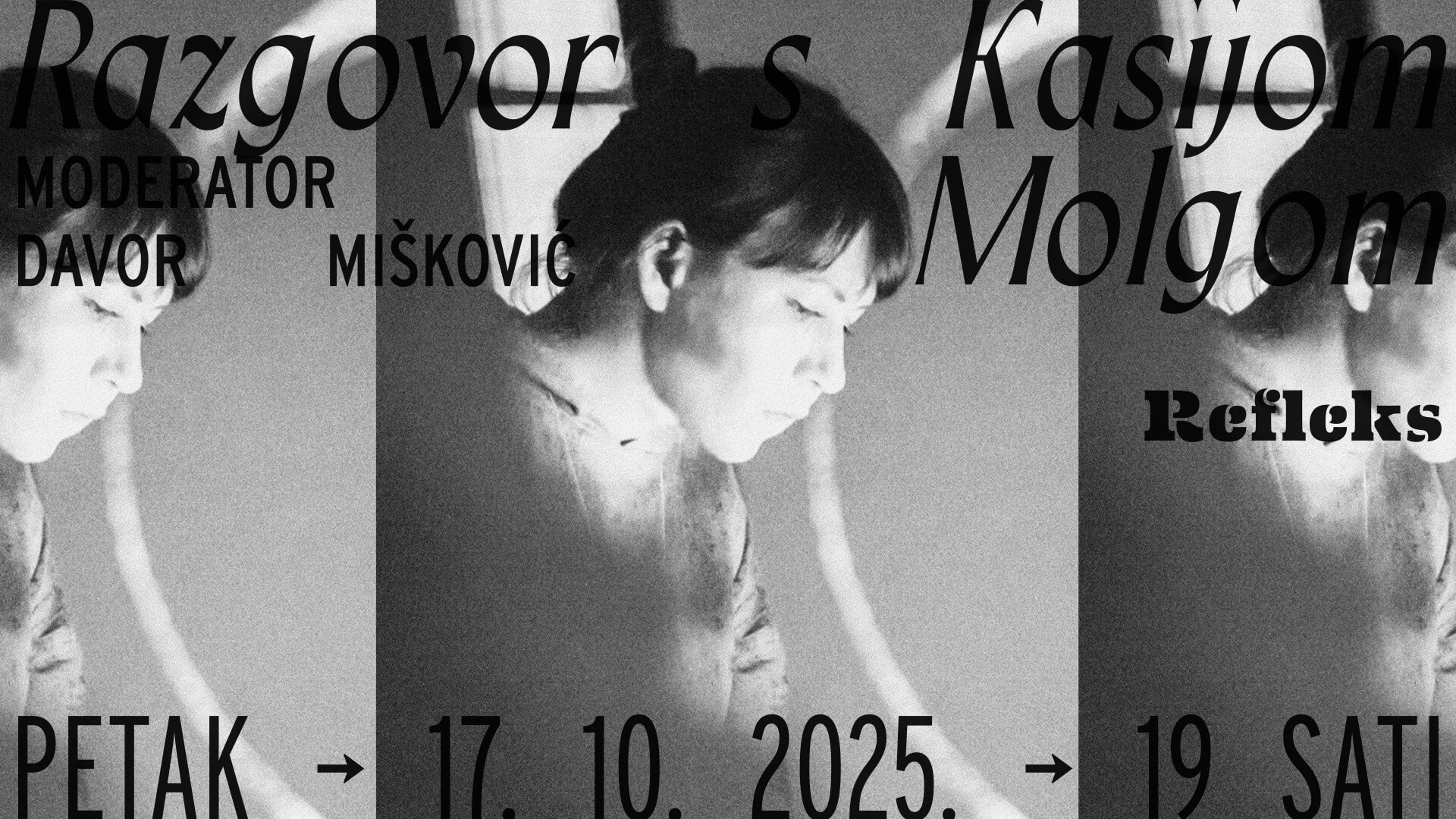Photo: Borut Brozović / Drugo more (Flickr gallery)
On the occasion of the opening of Kasia Molga’s exhibition Petroentanglements: How to be present for Aqua-life at the Filodrammatica Gallery, we invite you to join us for a talk with the Polish-British artist on Friday, October 17, at 7 p.m. in the Filodrammatica Hall (Korzo 28/1, Rijeka).The artist was hosted in Rijeka for an artistic residency within the S+T+ARTS4WaterII project, during which she developed the research and works now presented in the exhibition.
The conversation will be held in English and moderated by Davor Mišković.
Video: Borut Brozović / Drugo more
Kasia Molga‘s multidisciplinary practice combines art, design and scuba diving, with technology and science. She weaves together scientific research and intimate personal narrative to inspire new love and sympathy for our damaged waters. This is not art made ‘about’ the ocean, but ‘with’ the ocean. Molga is the founder and director of Studio Molga Ltd, where, aside from her art practice, she heads a team of creative technologists and architects delivering socially engaged commissions and educational projects. She is a regular guest lecturer at Willem de Kooning Academy in Rotterdam and recently has joined London College of Communication as Associate Lecturer at the Sustainable Futures Department.
Exhibition opening. Photo: Borut Brozović / Drugo more (Flickr gallery)
During her residency in Rijeka, the artist, with the support of collaborators from the Marco Polo Diving Center and the Natural History Museum Rijeka, sought to uncover both visible and invisible traces of oil spills and other forms of industrial pollution affecting marine organisms. In addition to diving, she explored locations with higher levels of contamination using an ROV – a remotely operated underwater vehicle that enables safe observation even in the deepest layers of the seabed.
From the collected underwater footage and photographs, Molga intends to create a visual database designed for training artificial intelligence models to recognize different levels of marine pollution. Thanks to its open-source nature, the developed model will be freely available and applicable in various parts of the world.
After the opening, you can visit the exhibition until November 7, on weekdays from 11 am to 1 pm and from 5 pm to 8 p.m., and on Saturdays from 5 pm to 8 pm.

ABOUT THE S+T+ARTS4WaterII PROJECT
Funded by the European Commission, the S+T+ARTS4WaterII (Science, Technology and Arts for Water Management) project engages in deep interdisciplinary collaboration, leveraging creative artistic processes combined with cutting-edge technological and scientific research. Europe’s ports face complex environmental and societal challenges—pollution, ecosystem degradation, climate change impacts, and socioeconomic pressures. Recognizing ports as crucial gateways connecting people, resources, and regions, the project addresses these challenges through art-driven innovation, digital solutions (AI, IoT, sensor platforms, drones, autonomous vehicles), and creative community engagements, aiming to enhance circularity, resilience, and ecological sustainability of port ecosystems.
The project involves partnerships with renowned European institutions including VITO and GLUON from Belgium, WAAG from The Netherlands, TBA21 from Spain, Kunst Haus Wien from Austria, the Camargo Foundation from France, OGR Torino from Italy, PiNA from Slovenia, UCD from Ireland, and Drugo More from Croatia. Together they form an ambitious programme of residencies, collaborative workshops, public showcases, and exhibitions aimed at reaching thousands across Europe. More information: starts.eu

STARTS4waterII is co-funded by the European Union under the STARTS – Science, Technology and Arts initiative of DG CNECT (GA no. LC-02629312.). Views and opinions expressed are those of the author(s) only and do not necessarily reflect those of the European Union or DG CNECT. Neither the European Union nor the granting authority can be held responsible for them.
Project is co-financed by the Government Office for Cooperation with NGOs. The views expressed in this publication are the sole responsibility of Drugo more and do not necessarily reflect the opinion of the Government Office for Cooperation with NGOs.




